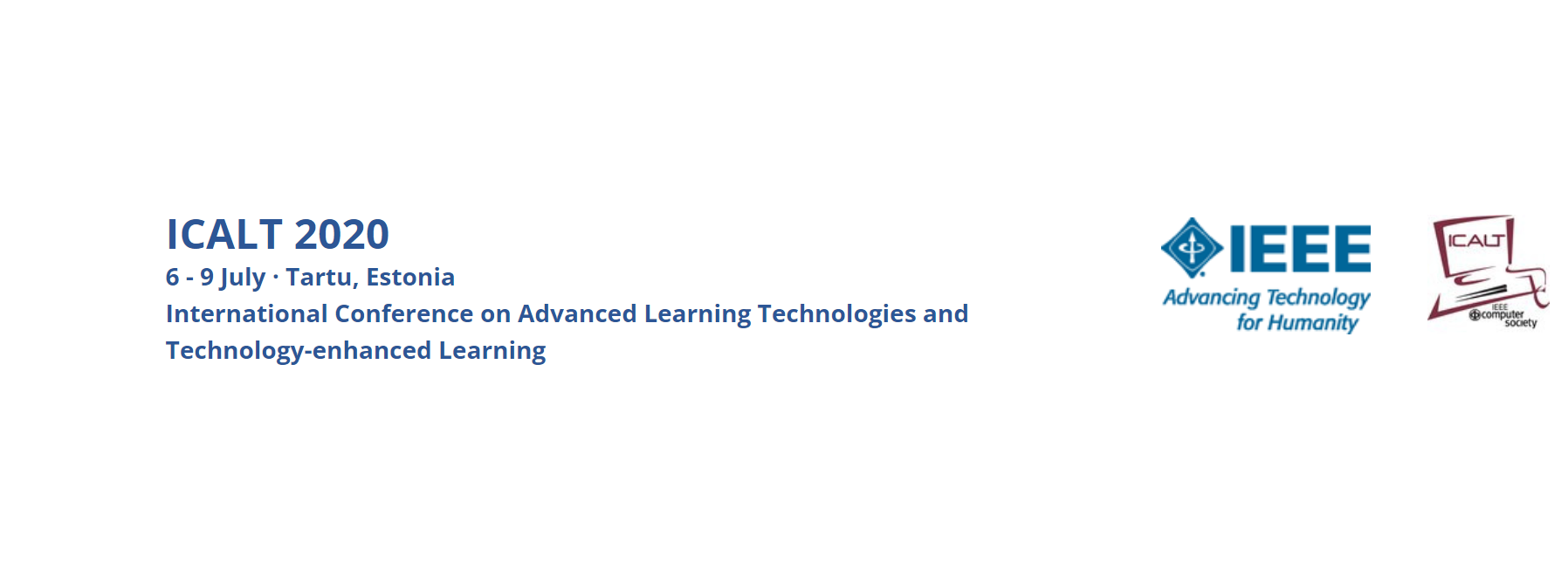
Track 10. Technology-supported education for people with disabilities (TeDISABLE)
Track Program Chairs
Charalampos Karagiannidis
University of Thessaly, Greece
(CO-ORDINATOR)
Mohamed Jemni
University of Tunis, Tunisia
Silvia Margarita Baldiris Navarro
Universidad Internacional de La Rioja (UNIR), Spain
Track description and topics of interest
Technology-supported education offers a unique opportunity for equal access to learning applications and services for all learners of the knowledge society, including people with disabilities and/or special education needs. Educational artifacts, including software and tangibles, offer a predictable and safe learning environment which can increase motivation and collaboration and can improve learning especially in 3D environments. The recent developments in multi-touch devices create a new potential for educational applications which can benefit especially learners with disabilities. Tangibles offer a practical and concrete experience, fostering new ways for learning. Interactive software, augmented reality and robotic technologies support new constructive learning practices, while e-learning systems and learning (content) management systems offer open access to life-long learning content and services independent of time and location barriers. These services are increasingly accessible through mobile technologies and devices, offering new opportunities for learning experiences especially for people with disabilities. The trend to embed ICT in everyday life changes our approach to accessibility, since disability is related to the capability of the learning environment to adapt to the requirements of each individual learner, including people with disabilities. At the same time, people with disabilities still face barriers in accessing and using educational services due to technical, organizational, social, and economical reasons. Following the successful organization in ICALT 2015-2019, TeDISABLE 2020 aims to form a forum for presentation and discussion of new trends for overcoming the barriers and exploiting the full potential of technology-supported education for people with disabilities.
Topics of interest include, but are not limited to:
- ICT and inclusive education
- Assistive technology applications and learning
- Accessibility and usability of educational content and applications
- Web2.0 and OER for people with disabilities
- Mobile and cloud computing applications for people with disabilities
- Virtual and augmented learning environments for people with disabilities
- Robotics applications for people with disabilities
- Pedagogical issues and Teachers training in technology-supported education for people with disabilities
- Case studies of ICT use in the everyday educational practice for people with disabilities
Track Program Committee
Fahryie Altinay, Near East University, Cyprus (fahaltinay@gmail.com)
Jesus Boticario, Spanish National University for Distance Education, Spain (jgb@dia.uned.es)
Thais Helen Chaves de Castro, Universidade Federal do Amazonas, Brazil (thais@icomp.ufam.edu.br)
Katia Fabiola, University of California Davis, USA (kvega@ucdavis.edu)
Daniel Guasch, Universitat Politècnica de Catalunya, Spain (daniel.guasch@catac.upc.edu)
José Hilera, University of Alcala, Spain (jose.hilera@uah.es)
Eleni Koustriava, University of Macedonia, Greece (elkous@uom.edu.gr)
Marina Papastergiou, University of Thessaly, Greece (mpapas@uth.gr)
Yurgos Politis, University College Dublin, Ireland (yurgos.politis@ucd.ie)


